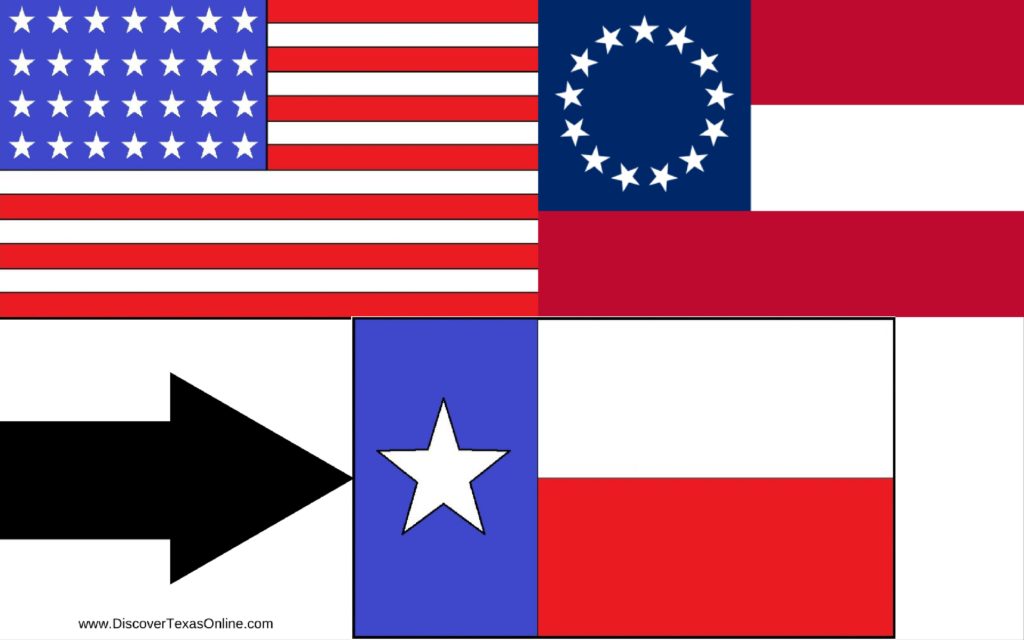 The United States Declaration of Independence begins with these words:
The United States Declaration of Independence begins with these words:
When in the course of human events it becomes necessary for one people to dissolve the political bands which have connected them with another and to assume among the powers of the earth, the separate and equal station to which the Laws of Nature and of Nature’s God entitle them…
If the original 13 colonies were entitled by “the Laws of Nature and of Nature’s God” to voluntarily separate themselves from England, did those same laws allow Texas to voluntarily separate from the union of states if the people of Texas believed it was in their best interest to do so?
That was the question the citizens of Texas put to a vote on January 29, 1861.
At a Unionist rally in Austin, Governor Sam Houston appealed to the people with these words:
“What is there that is free that we have not got? Are our rights invaded and no government ready to protect us? No! Are our institutions wrested from us and others foreign to our taste forced upon us? No! Is the right of free speech, a free press, or free suffrage taken from us?…Has our property been taken from us and the government failed to interpose…? No, none of these! Whence, then, this clamor about disunion…are we ready to sell reality for a phantom?
“If Mr. Lincoln administers the government in accordance with the constitution, our rights must be respected. If he does not, the constitution has provided a remedy…I have been taught to believe that plotting the destruction of the government is treason; but these gentlemen call a man a traitor because he desires to uphold the constitution. Who are the people who call me a traitor?
“I can speak but little longer; but let my last words be remembered by you…In the far distant future the generations that spring from our loins are to venture in the path of glory and honor. If untrammeled, who can tell the mighty progress they will make? If cast adrift—if the calamitous curse of disunion is inflicted upon them, who can picture their misfortunes and shame?”
He warned the citizens strongly,
“Mark me, the day that produces a dissolution of this [Union] will be written in the blood of humanity,”
and cautioned,
“If you go to war with the United States, you will never conquer her…If she does not whip you by guns, powder and steel, she will starve you to death.”
Still the majority voted to secede from the Union. The ordinance was to go into effect on March 2 –- the birthday of the Republic of Texas.
When their beloved governor refused to sign his name in allegiance to the Confederacy saying, “I love Texas too well to bring civil strife and bloodshed upon her,” they booted him from office.
His warnings that
This is a very unique and significant event in American history. Here’s why:
- Most of us think of the United States as “one nation, indivisible,” but this line from the Pledge of Allegiance was not penned until 1892. Before the Civil War, people said “the United States are…”, not “the United States is… ” The southern states felt justified in leaving the Union because, in their understanding, the United States was a union of sovereign states. When the goals of the group no longer worked to their benefit, they withdrew.
- Texas was a sovereign nation before becoming a state. That’s why the Lone Star flag flies at equal height to the American Stars and Stripes. (Other states fly their flags lower than the national flag.) It is significant that Texas’ secession went into effect on the birthday of the Republic of Texas.
- When Texas became a state again after the Civil War, it retained the right to subdivide into as many as five states. Some say they retained the right to secede. If you’re up for a bit of research, see if this is true or if it is merely rumor and bold talk.
Teaching Tip #1: The balance of States’ Rights vs. Central Government is still a controversy! Find examples of this issue in current news and discuss the strengths and weaknesses of each position.
Teaching Tip #2: As you’re driving around town, notice how the Texas flag is displayed. How many states besides Texas were a sovereign nation before becoming a state? If you find others, do their flags fly at equal height with the American flag?
Teaching Tip #3: Some say Texas still has a right to secede. In 2009, Texas Governor Rick Perry suggested that secession was an option. Research what motivated former Governor Perry to say this. Is it possible? Would it be wise? (Please note: I take no public position, but as this issue comes up every few years, it seems worthy of enlightened discussion.)




